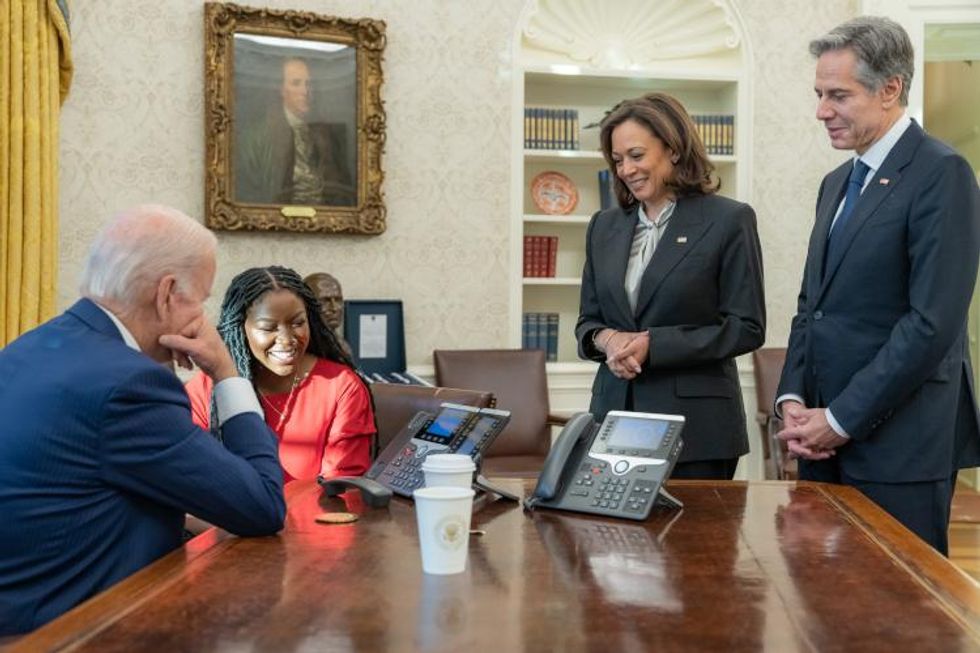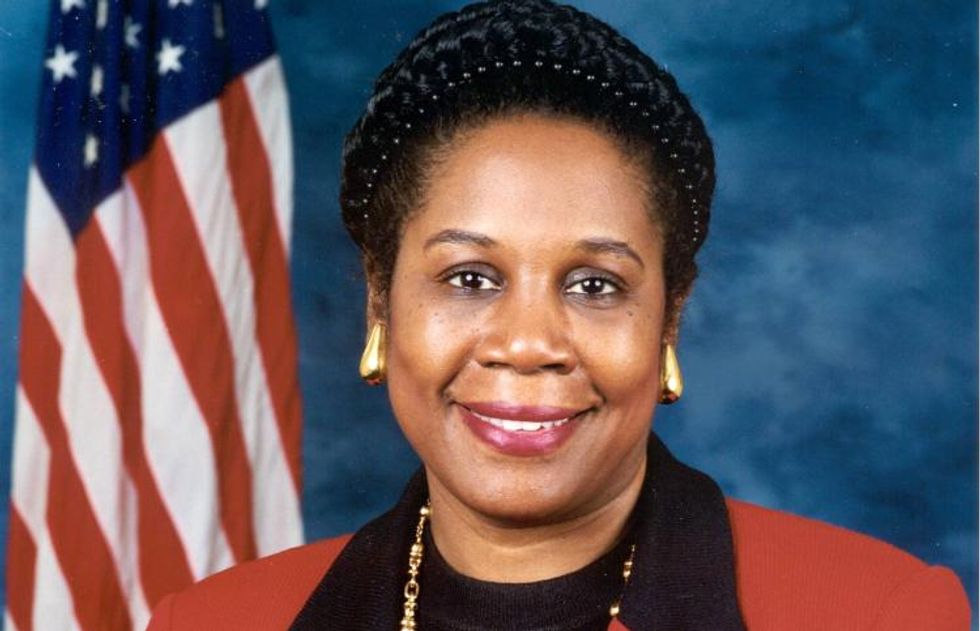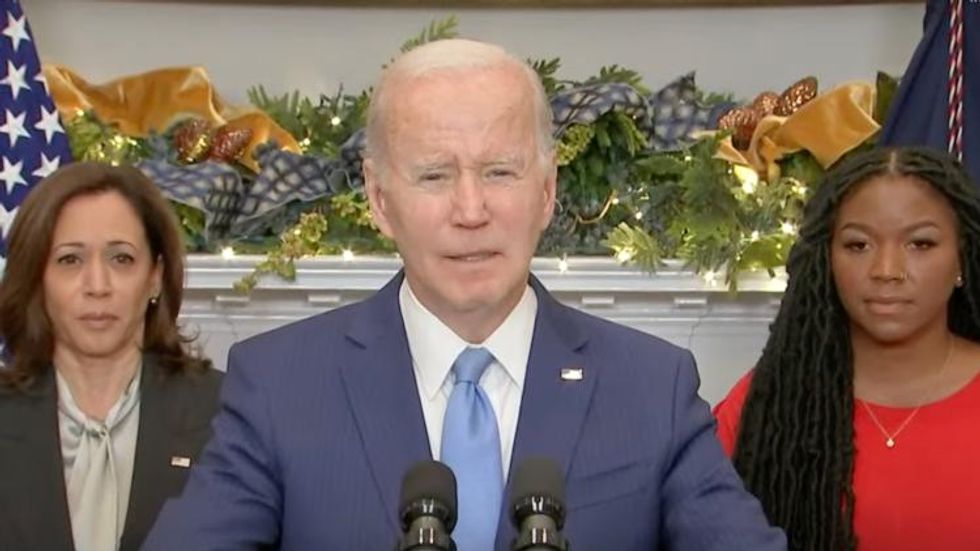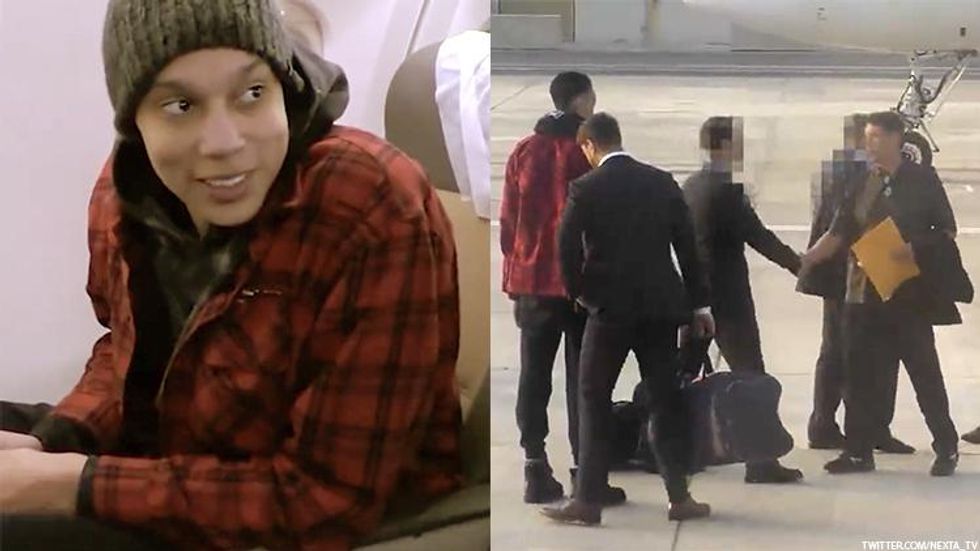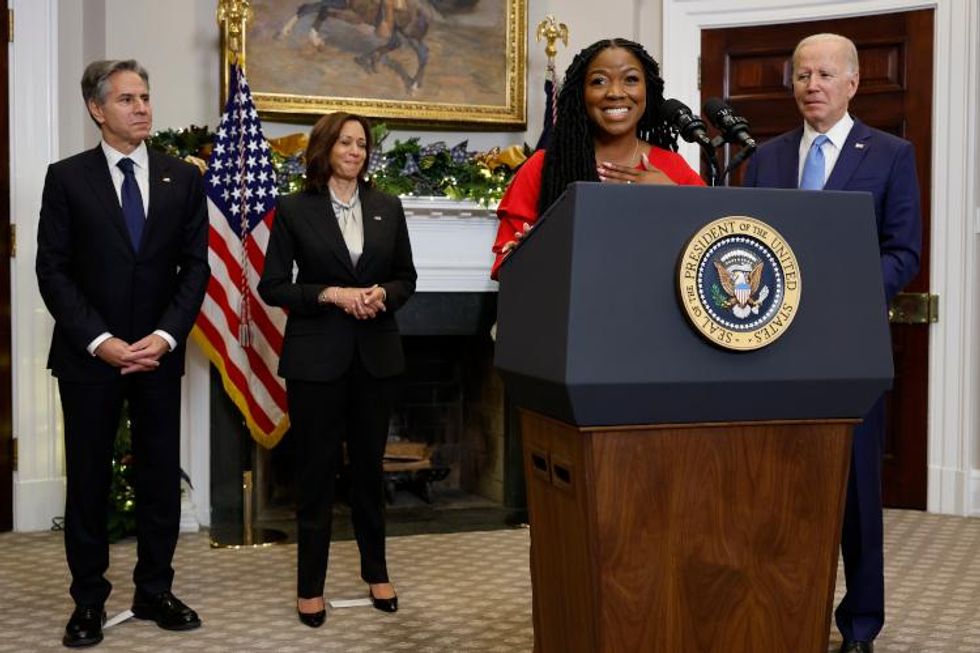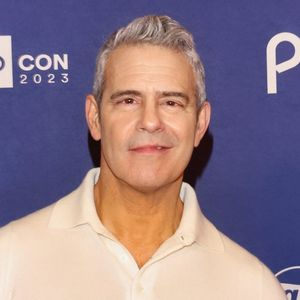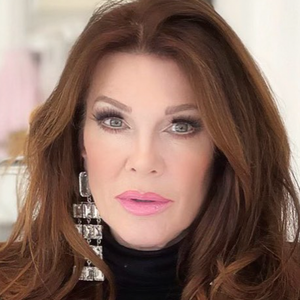Suppose you are 31 years old, in the prime of your life. You have won two gold medals at the Olympics and been a seven-time WNBA All-Star. You're married to Cherelle, the woman you love and the one you envision a happy future with. The opportunity arises for you to showcase your talent abroad, so you pack your bags and board a plane. But when you land, instead of gaining attention for your on-the-court plays, you're wrongfully detained in a country that's just started a war that your home nation is on the other side of.
You're also a gay woman of color in a less than tolerant society.
Now what?
For Brittney Griner, who was freed from Russian imprisonment in December after nearly 10 months of detention, this was an acute reality.

Getty Images
Griner, or BG as she's affectionately known, has suffered the geopolitical consequences of being a famous Black gay athlete of value -- she played for nearly seven years with the Russian team UMMC Ekaterinburg in the Russian Women's Basketball Premier League.
BG was sentenced to nine years in a penal colony after being arrested at a Moscow airport February 17 for possessing two vape cartridges containing a minute amount of cannabis oil. BG pleaded guilty to what she called an "honest mistake" and was convicted in August, but her appeal of the nine-year sentence a judge had handed down was denied in October.
The Federal Customs Service of Russia said Griner was passing through the green channel at Moscow's Sheremetyevo Airport upon arriving from New York when she was found to be in possession of illegal drugs and detained. As part of its investigation into alleged large-scale drug transportation, the agency opened a criminal case.
U.S. Rep. Sheila Jackson Lee, whose Texas district includes the Houston area where the Griners live, was in Lithuania and Ukraine when the Russians took BG and the Russian invasion of Ukraine began.
"I had been there for a couple of days, engaging with Europeans on the possibility of Russia going into Ukraine and believing that collectively with European leaders and others, [Russian President Vladimir] Putin would stand down," Jackson Lee says. "So it was a shock as I watched him begin to go into Ukraine to take that country. Later it was a shock to learn they took Brittney."
Upon returning to the United States when it became clear that BG had been detained, Jackson Lee hoped that efforts under way to try to get BG out quietly would be successful -- but she feared that the highest levels of the Russian government were prepared to leverage the arrest for their benefit.
Jackson Lee, a senior member of the House Judiciary Committee, the chairwoman of the Subcommittee on Crime, and a member of the Homeland Security Committee, acutely understands how political hostage-taking works.
"I want to be clear that they took her. The Russians took her and nothing else," Jackson Lee says.
"She was in an airport. She had a minute, minuscule, an unbelievable amount, if you will, of whatever was alleged," Jackson Lee says, while clarifying that she doesn't believe anything the Russian government has put forth in this case.

Rep. Sheila Jackson Lee
Lee explains that while Russian laws are certainly different, it would have been feasible for the nation to deport BG immediately.
"You can send the person back on a plane, back to the United States, or if they were from Great Britain, or if they were from France, you can send them right back," Jackson Lee says as she becomes exasperated. "They're in the airport! There is absolutely no reason for you to take them anywhere."
Nothing gets done in Russia without the blessing of Putin, Jackson Lee says. She's convinced that somebody got word to Putin of BG's arrival at the airport ("She was coming back to play after being there for seven years. Seven years, and a 6-foot-9 person is not hard to recognize"). BG was then detained as a political pawn because of his whims, Jackson Lee says.
"To know what was going on, Russia is truly under Putin. It is truly the Iron Curtain," Jackson Lee says. "There's no freedom for the people. There's no freedom for anyone that comes to Russia."
Jackson Lee takes a deep breath and continues.
"But let me be very clear. Vladimir Putin is inhumane. He's inhumane against people of color. He's inhumane against LGBTQ [people], as we all know." In fact, Putin signed into law a new draconian anti-LGBTQ+ law just days before Griner's release.
On March 23, a U.S. official in Russia was finally granted access to BG, later reporting that the WNBA star was doing "well." Over months she would appear on Russian television during her court hearings. She was always shackled and led through the narrow corridors of the court.
Jackson Lee says a little-known new group within the State Department was integral to moving BG's case forward.
"Both Brittney Griner and Paul Whelan [a former U.S. Marine held in Russia for the past four years, ostensibly for spying] are classified as wrongfully detained under the Levinson Act," a senior administration official explained prior to Griner's release. "The U.S. Government's efforts to bring them home involves a coordinated effort that draws on multiple agencies across the government and utilizes all of the U.S. government's expertise and resources. Day in and day out, the White House works closely with the Hostage Recovery Fusion Cell and the Office of State Department Special Presidential Envoy for Hostage Affairs, who lead efforts on hostage and wrongful detainee efforts."
The Levinson Act, which Congress enacted in 2020, dictates much of the activity surrounding wrongfully detained Americans in other countries, a State Department official notes.
"It codified elements of wrongful detention policy and laid out criteria for the department to use when we're looking at cases where U.S. citizens might be held wrongfully," the official at State says.
The senior administration official added, "The United States government has been demanding consular access to both Brittney Griner and Paul Whelan, the other wrongfully detained American in Russia. They have not offered consistent consular access."

Image via CNN screenshot
While the senior administration official wouldn't speculate on Russia's motivations for taking Griner, the official said that it's evident that her status as a well-known, high-profile person was a factor.
"She's not just famous in the United States," the senior administration official said. "She's also quite famous in Russia."
Jackson Lee says that creative solutions were proposed from the beginning.
"We thought that the team could get around [the detention]. Then we thought that the oligarch who owned the Russian team could get around [to freeing her], but none of that worked," Jackson Lee says. "And there was a period of time we're trying to get the United States and others, the Moscow Embassy, to deal with it diplomatically."
Meanwhile, BG's fate in the Russian judicial system was speeding along. It quickly became clear that BG would be made to stand trial in a justice system where more than 95 percent of those charged with a crime are convicted.
BG tried to appeal to the judge's sense of humanity as she pleaded for leniency.
"I want the court to understand that it was an honest mistake that I made while rushing and in stress trying to recover post-COVID and just trying to get back to my team," she told a Russian court in August. Her contrition, however, served no benefit, and she was sentenced to nine years of confinement.
During her court appearances, the nearly seven-foot-tall BG was placed into a small cage where she couldn't stand straight but had to remain on her feet.
"The treatment was inhumane being in that cage," Jackson Lee says. "We had to fight to get her to be able to sit down as opposed to stand up because she was too tall to stand up in that cage."
Jackson Lee says that at the outset she was inclined to make a lot of noise to get the Biden administration's attention but that she took a less public approach at BG's family's request.
"The family had great concerns," Jackson Lee says. "It's her family. And family takes priority. We listen to them. We honor them, and we respect them."
While the U.S. diplomatic effort to free Griner was complicateded by Russia's war in Ukraine, part of their work was as a support system to Cherelle and Griner's family.
A State Department official explains that teams handling cases of Americans wrongfully detained in foreign countries are dedicated to supporting the families of those detained abroad. After BG was declared wrongfully detained May 3, a new section of the State Department took the lead on her case -- the Office of the Special Presidential Envoy for Hostage Affairs.
"There is a dedicated team working on this day in and out that cares deeply about it," the senior administration official said prior to Griner's release. "There's not a day that goes by that these cases aren't being actively discussed. Every day the question is asked: What can we try next?"

The State Department official with whom The Advocate spoke explains that every family of a wrongfully detained individual is assigned a case officer who reports to the U.S. Special Presidential Envoy for Hostage Affairs, Roger Carstens, who oversees the cases.
"We are on call 24/7 for those families. If there's anything that they want to reach out to us about, any questions that they have, anything that they need us to track down, we are available to them," the State Department official says.
Since 2015, when a spate of wrongful detentions in Syria and Iraq took place, the State Department began to focus more on the needs of families.
"Something that we put a lot of our effort into is family engagement and talking with the families, representatives of the individual, whoever it may be," the State Department official says. "That is a full-time, 24/7 commitment that we make to the family members or the representatives depending upon the person. That means we're there for them. We give them updates based on their schedule and what they prefer. Some families like to have regularly scheduled meetings once a week. Some families don't like to talk at all. Some families only want to talk to us when they have news, but we modify our communication plan with the families based on what their needs are."
The official notes that the U.S. government expects prisoners in Russia sent to penal colonies to receive regular consular access.
One problem, the official says, is that many of these penal colonies are more than eight hours away from Moscow by car. Additionally, the Russian government controls access, which it sometimes grants on an unreliable basis.
"We expect that the Russians will uphold their legal obligations under the convention on consular relations where they have to allow access," the State Department official said in advance of BG's release. "We expect that they will continue that, and we will continue to demand that if it's not coming in a timely fashion."

Getty Images
On November 9, when BG's transfer to a penal colony was initiated, she vanished. All parties were initially left in the dark about the transfer to the colony, where she would serve her sentence.
The process of moving people sentenced to punishment in penal colonies is called etap and is designed to be opaque as part of the punishment process, according to the Poland-based Centre for Eastern Studies.
People convicted of crimes are often transported in windowless railroad carriages known as Stolypin cars, but neither the sentenced individual nor their family knows where they are going.
Human rights activists often criticize penal colonies for their distance from densely populated areas, preventing inmates from having regular contact with their families and attorneys.
In Russia, there are four types of prison colonies, each with its own incarceration regime. As a rule, prisoners in colony-settlements are free to move around the facility, live in large barracks, regularly leave on passes, visit family, and dress as civilians. They are generally the least strict of prisons and mostly for those who have served a significant portion of their sentence.
A prison colony under the ordinary regime is highly supervised by its guards. The inmates live in large barracks with more than 100 beds. They are constantly supervised and cannot move about freely. Inmates living in a strict or special prison colony are usually restricted; they usually live in locked cells with up to 50 others.
After more than a week without visibility into where BG was, on November 17, her lawyers, Maria Blagovolina and Alexander Boykov, sent The Advocate a statement outlining that BG was brought to IK-2 in Mordovia, about 300 miles from Moscow. IK-2 is classified under the ordinary regime security level and is known for its abuse of prisoners.
"We visited her early this week," her legal team wrote. "Brittney is doing as well as could be expected and trying to stay strong as she adapts to a new environment. Considering that this is a very challenging period for her, there will be no further comments from us."
Brittney's transfer to what some would call a gulag, paired with the U.S. midterms -- where Republicans, never seen as particularly sympathetic toward Griner, fared relatively poorly -- appeared to mark a new, urgent chapter of negotiations.
President Biden said during a post-election press conference that he was committed to securing BG's release.
"My hope is that, now that the election is over, Mr. Putin will be able to discuss with us and be willing to talk more seriously about prisoner exchange," Biden said at the time.
Then, on December 8, before 8:30 a.m. Eastern, news of a successful negotiation for BG's release was cause for celebration for her family, friends, teammates, and supporters. Flanked by BG's wife, Vice President Kamala Harris, and Secretary of State Antony Blinken, Biden announced joyous news ahead of the holidays.
"Moments ago, standing together with her wife, Cherelle, in the Oval Office, I spoke with Brittney Griner," Biden said. "She's safe. She's on a plane. She's on her way home."
Biden continued, "After months of being unjustly detained in Russia, held under intolerable circumstances, Brittney will soon be back in the arms of her loved ones, and she should have been there all along. This is a day we worked toward for a long time. We never stopped pushing for her release. It took painstaking and intense negotiations, and I want to thank all the hardworking public servants across my administration who worked tirelessly to secure her release."
After Biden announced BG's release, he gave her wife the floor.
"Over the last nine months, you all have been so privy to one of the darkest moments in my life, and so today I'm just standing here overwhelmed with emotions, but the most important emotion that I have right now is just sincere gratitude for President Biden and his entire administration," Cherelle Griner said.
Cherelle thanked Harris, Blinken, National Security Advisor Jake Sullivan and others, noting that it took the work of dozens of people to bring BG's case to a positive conclusion.
Similarly to BG, Whelan has been wrongfully detained in Russia since 2018. The former Marine was convicted on espionage charges -- charges he denies -- in 2020 and sentenced to 16 years of imprisonment in a similarly unfair trial. The Biden administration had been attempting to negotiate the release of both BG and Whelan in exchange for a prisoner important to the Russian government, but, according to the Biden administration, Russia made a take-it-or-leave-it offer for BG or nobody at all.
In exchange for BG's release, the U.S. released convicted Russian arms dealer Viktor Bout. For many, the joy of Griner's freedom was paired with frustration as an international criminal was given the same deal as someone carrying tiny traces of cannabis oil in her luggage. Cherelle Griner intimated that she hoped Whelan would have been part of the agreement that freed her wife.
"Today, my family is whole, but as you all are aware, there are so many other families who are not whole," she said. "BG and I will remain committed to the work of getting every American home, including Paul, whose family is in our hearts today, as we celebrate BG being home."
Cherelle's pledge concluded with empathy.
"We do understand that there are still people out here who are enduring what I endured the last nine months of missing tremendously their loved ones," she said.


